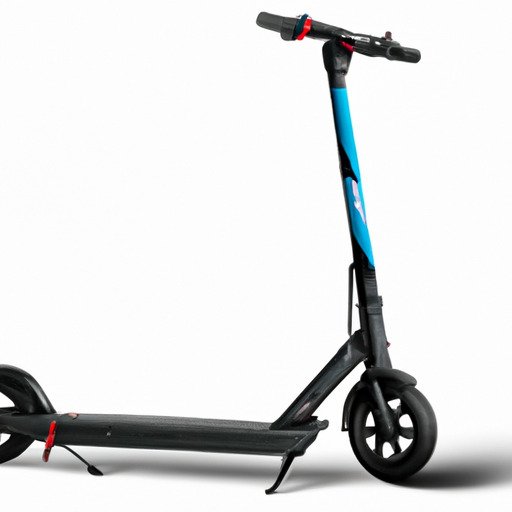
You might be wondering if electric scooters are legal in the UK. Well, I’ve got the answer for you! Electric scooters have been gaining popularity as an alternative mode of transportation, especially in crowded cities. They are convenient, eco-friendly, and fun to ride. However, the legality of electric scooters in the UK can be a bit confusing. There are certain rules and regulations that you need to be aware of before you hop on one.
Curious to know more about the legality of electric scooters in the UK? In the upcoming article, we’ll dive into the details and provide you with all the information you need. From understanding the current laws and restrictions to knowing the specific requirements and limitations, we’ll cover it all. So, if you’re interested in riding an electric scooter in the UK or already own one, stay tuned! We’ve got you covered with everything you need to know to ensure you’re riding within the legal boundaries.

What Are Electric Scooters?
Definition of Electric Scooters
Electric scooters, also known as e-scooters, are a type of personal transport vehicle that is powered by an electric motor. Unlike traditional scooters that require manual propulsion, e-scooters are propelled by an electric motor, making them a convenient and eco-friendly mode of transportation.
Types of Electric Scooters
There are various types of electric scooters available in the market, catering to different needs and preferences. Some models are designed for urban commuting, while others are built for off-road adventures. Electric scooters also come in different sizes and power outputs, allowing riders to choose a scooter that suits their requirements. Whether it’s for short commutes, leisure rides, or even parcel delivery, there is an electric scooter to fit almost every purpose.
Current Status of Electric Scooters in the UK
Overview of Current Laws and Regulations
As of now, electric scooters are not legal for use on public roads in the UK. They are categorized as Personal Light Electric Vehicles (PLEVs) and fall under the same classification as Segways, hoverboards, and self-balancing boards. Under the current legislation, it is illegal to ride electric scooters on public roads, cycle lanes, and pavements, limiting their usage to private land with the owner’s permission.
Comparison with Other Countries’ Regulations
Several countries have already embraced electric scooters as a viable mode of transportation and have implemented regulations to govern their use. For example, in countries like Germany, France, and Spain, electric scooters are permitted on public roads, provided riders follow certain speed limits and safety regulations. These countries have also introduced designated parking spaces and charging stations to support the growth of electric scooter adoption.

Existing Regulations for Electric Scooters in the UK
Classification of Electric Scooters
Electric scooters are classified as Personal Light Electric Vehicles (PLEVs) in the UK. This classification places them under the same regulations as other electric personal transport devices, such as Segways and hoverboards. While this classification acknowledges the purpose and functionality of electric scooters, it also restricts their use on public roads.
Requirements for Roadworthiness
Since electric scooters are not legal for road use in the UK, there are currently no specific requirements for roadworthiness. However, if electric scooters were to become legalized, it is likely that regulations similar to those applied to motorcycles and bicycles would come into effect. Such requirements may include proper lighting, brakes, and reflectors to ensure the safety of riders and other road users.
Minimum Age and License Requirements
As electric scooters are not legally permitted on public roads in the UK, there are currently no minimum age or license requirements for using them. However, if legislation were to change, it is possible that a minimum age requirement and the need for a driving license or specialized permit could be introduced to ensure responsible and safe usage.
Speed and Power Restrictions
In the UK, electric scooters are not allowed to exceed a maximum speed of 15.5 miles per hour (25 kilometers per hour). This speed limit is in place to prevent excessive speed and maintain safe riding conditions. Additionally, the power output of electric scooters is limited to 500 watts to ensure they are suitable for urban commuting while minimizing environmental impact.
Insurance and Tax Obligations
Currently, electric scooters are not subject to specific insurance or tax obligations in the UK due to their restrictive legal status. However, if electric scooters were to be legalized, it is possible that riders would be required to have insurance coverage similar to that of bicycles or motorcycles. Additionally, taxation regulations for electric scooters may also be considered to ensure compliance with overall transport policies and funding for infrastructure development.
Proposed Legalization of Electric Scooters in the UK
Government Trials and Pilot Programs
Recognizing the potential benefits of electric scooters in reducing traffic congestion and promoting eco-friendly transportation, the UK government has initiated trials and pilot programs in selected regions. These trials aim to evaluate the feasibility and impact of legalizing electric scooters on public roads. By analyzing usage patterns, safety concerns, and integration with existing transport infrastructure, the government can make informed decisions regarding the future legality of electric scooters.
Safety and Infrastructure Considerations
One of the key considerations in legalizing electric scooters is safety. It is important to ensure that riders and pedestrians are protected from potential risks and accidents. The introduction of electric scooters on public roads may require the implementation of safety measures, such as mandatory helmet usage and safety education campaigns. Additionally, infrastructure improvements, such as dedicated lanes and parking spaces for electric scooters, could enhance the overall safety and usability of these vehicles.
Public Opinion and Stakeholder Feedback
The legalization of electric scooters in the UK is a topic of debate among different stakeholders and the general public. While some people advocate for their legalization, highlighting the benefits of reducing traffic congestion and promoting sustainable transportation, others express concerns about safety risks and integration with existing transport systems. It is important for policymakers to consider and address these opinions and feedback while formulating regulations and guidelines for electric scooters.

Potential Benefits of Legalizing Electric Scooters
Eco-Friendly Transportation Option
Electric scooters offer a greener alternative to traditional gasoline-powered vehicles, significantly reducing carbon emissions and air pollution. By legalizing electric scooters, the UK can promote sustainable transportation options and contribute to its climate change goals.
Reduced Traffic Congestion
With its compact design and ability to navigate through tight spaces, electric scooters can help alleviate traffic congestion in crowded urban areas. By legalizing electric scooters and encouraging their use, the UK can relieve pressure on existing transport infrastructure and enhance overall mobility.
Health and Well-being Impact
Electric scooters provide an opportunity for physical activity, especially for short commutes. Incorporating electric scooters into daily commutes can contribute to increased physical activity levels, promoting better health and well-being among riders.
Economic Opportunities
The legalization of electric scooters can create economic opportunities by encouraging the growth of the electric scooter market. This could lead to the establishment of new businesses, job creation, and increased investment in research and development for electric vehicle technologies.
Challenges and Concerns Regarding Electric Scooter Legalization
Safety Risks and Accidents
One of the main concerns associated with the legalization of electric scooters is the potential increase in accidents and safety risks. Proper regulations, including speed limits, safety equipment requirements, and education campaigns, should be implemented to address these concerns and ensure the safety of riders and other road users.
Pavement and Pedestrian Issues
Another challenge associated with electric scooter legalization is the potential conflict between scooter riders and pedestrians on pavements. It is essential to establish clear rules and designated spaces to prevent collisions and ensure the smooth integration of electric scooters within existing pedestrian infrastructure.
Integration with Existing Transportation Systems
The introduction of electric scooters on public roads requires careful integration with existing transportation systems. Considerations such as parking, charging infrastructure, and integration with public transport networks need to be thoroughly evaluated to ensure a seamless and efficient commute experience for all road users.
Enforcement and Compliance
Enforcing regulations governing electric scooters can pose challenges, particularly in terms of monitoring compliance and addressing any misuse or reckless behavior. Effective enforcement strategies and penalties for non-compliance may be necessary to ensure that riders adhere to safety regulations and responsible riding practices.

International Examples of Electric Scooter Legalization
Case Studies from Other Countries
Countries such as Germany, France, and Spain have successfully implemented regulations to legalize electric scooters on public roads. These countries have paved the way for widespread adoption, providing valuable case studies and lessons learned that the UK can take into account when considering its own legislation.
Lessons Learned and Best Practices
International examples of electric scooter legalization highlight the importance of clear regulations, designated infrastructure, and safety measures. By studying the experiences of countries that have gone through this process, the UK can adopt best practices and avoid potential pitfalls when formulating its own regulations.
Advocacy and Opposition to Electric Scooter Legalization
Environmental Organizations
Environmental organizations are often at the forefront of advocating for the legalization of electric scooters. They highlight the environmental benefits, reduced carbon emissions, and potential for shifting towards sustainable modes of transportation.
Transportation and Mobility Advocates
Transportation and mobility advocates recognize the potential of electric scooters in improving urban mobility and reducing congestion. They advocate for proper regulations and infrastructure development to support the integration of electric scooters into existing transportation systems.
Opposing Views and Concerns
Opponents of electric scooter legalization express concerns about safety risks, misuse of scooters, and potential conflicts with pedestrians. Their concerns revolve around how electric scooters fit into the overall transport landscape and the potential disruption they may cause if not properly regulated.

Conclusion
In conclusion, electric scooters are not currently legal for use on public roads in the UK. However, the government has initiated trials and pilot programs to evaluate the potential benefits, safety considerations, and infrastructure requirements associated with their legalization. As the UK continues to explore electric scooter regulations, it is crucial to consider the potential benefits like eco-friendliness, reduced traffic congestion, and economic opportunities, while addressing challenges and concerns related to safety, pedestrian integration, and enforcement. By learning from international examples and engaging with stakeholders, the UK can work towards creating a comprehensive and forward-thinking framework for the legalization of electric scooters.























